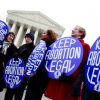Just four years after Colorado’s first open primary, a faction of Republican leaders are attempting to opt-out of the laws approved by voters in 2016 which allowed unaffiliated voters to cast votes in partisan primaries. If successful, the largest group of Colorado voters, those without affiliation to a political party who represent nearly 40% of the state’s 4 million voters, will lose their voice in determining Republican nominees for U.S. president and state office races.
Chuck Bonniwell, one of a few dozen members of the Colorado Republican Party Executive Committee and host of a conservative podcast focused on state politics, is traveling the state in an effort backed by a contingent of grassroots Republicans to garner enough votes among county GOP officers to opt out of the open primaries
“Chuck and his merry band of rebels are now touring the eastern and southeastern part of the state, basically talking to all kinds of Republican grassroots groups about changing the way that we have this open primary system. Their point is it’s destroying the Colorado Republican Party. They want to go back to having a closed primary. They’re fighting an uphill battle,” explained Bonniwell’s wife and co-host during an episode of their show earlier this month.
As with other issues, Colorado Republicans are divided on opting out of open primaries along the now-familiar fault lines of grassroots conservatives who generally support former President Trump, his statements, and his policies, versus more traditional, so-called “establishment” party members who are generally more moderate and centrist. Control over the party and regaining political standing for the GOP in Colorado are at stake.
Republican campaign adviser, former Colorado chair of the GOP, and political commentator Dick Wadhams appeared on Bonniwell and Hayden’s show in February and discussed the prospect of opting out of open primaries.
“To be honest, I think it would be a mistake,” said Wadhams. “And in fact, I was engaged in that debate when this came up a few years ago when there was a [failed] vote in the state central committee to attempt to get the 75% to to opt out of the of the primary and go to a state convention for nominations. And I just I think that would be a mistake, because if we’re going to be able to appeal at all to unaffiliated voters who determine elections in this state — and always have, by the way, — [it would be counterproductive.]”
In order to opt out of open primaries, 75% of the GOP state central committee members would have to vote in favor. Bonniwell and others have contested the legality and constitutionality of that requirement, since the open primaries were approved by simple majorities in a vote of the people.
Nonetheless, it appears that Bonniwell’s group will not initiate a challenge to that rule, and will attempt to garner the approximately 390 votes needed, which is the equivalent of 75% of the state central committee.

The grassroots Republicans believe that open primaries incentivize wealthy Democratic donors to support moderate Republican candidates in primary races to ensure they beat the grassroots candidates.
Bonniwell regularly cites media heiress Kathryn Murdoch as influencing electoral outcomes in Colorado Republican primaries. While Murdoch’s Unite America PAC did spend substantial sums in last year’s GOP primary, it was only one of several “pro-establishment” Colorado groups playing in Republicans’ statehouse primaries.
Bonniwell gave this update from the road on his show earlier this month:
“I’m in Edad, Colorado — Kiowa County, which is where the Sand Creek Massacre occurred. I just met with the vice-chair [of Kiowa County GOP] and [I was] convincing him that we got to take the Republican primaries back for Republicans and not let Kathryn Murdoch buy every seat and every squish Republican she can get. So, it was a great meeting and we’ve got another proponent there. Now, there are three, hopefully, from Kiowa County. And we just pick them off a few at a time. We’ve got to get 390 [votes among the state central committee members], so, three less now. … And the worst part about that is that Kathryn Murdoch pours hundreds and hundreds of thousands of dollars into conservative counties and overwhelms the conservative person with somebody else who then go to the legislature and votes with the Democrats.”
Hayden echoed Bonniwell’s assertion, saying, “That’s a theory. And that’s, again — that’s why [establishment Republicans] won the open primary. And so I would recommend to people, don’t listen. You’re going to hear Republicans — some of the establishment guys are going to say things like, ‘Oh, well, we won’t appeal to the unaffiliated voters.’”
Passed by voters in 2016, Propositions 107 and 108 defined the parameters allowing party members and unaffiliated voters to participate in balloted primary elections, both for the U.S. presidential primaries and primaries for statewide races. Voters with no party affiliation can submit a single ballot in the primary races for the party of their choice.
Prior to 2016 in Colorado, party nominees for U.S. president had been determined by a caucus system, whereby voters registered with a political party (i.e., Democrats, Republicans, Libertarians, Green Party, etc.) gathered in person by precinct to debate and persuade one another in determining the precinct’s choice for the party nominee. Precinct results were then tallied to determine the statewide nominee for each party. Unaffiliated voters could not participate.
Proposition 107 passed in Colorado with a 28% margin. Referred to voters by the Colorado General Assembly, this law reformed state election law to institute primary elections to determine presidential nominees for political parties.
Similarly, Proposition 108 passed decisively but by a much smaller margin, with about 8% more votes favoring open primaries.
The 2016 campaigns in support of 107 and 108 had large financial advantages over opponents, receiving over $4 million in donations. Kent Thiry, the former CEO of Denver’s Fortune 500 kidney dialysis company DaVita, contributed $1 million in backing the effort promoted by an organization called Let Colorado Vote.
Both ballot measures were hailed for their potential to democratize the primary process, include more voters, and wrest control of deciding nominees from engaged party activists.
Opponents to the measures included both Democratic and Republican Party leaders, who contended that open primaries could lead to bad faith players influencing primary results, while removing incentives for voters to join a party.



